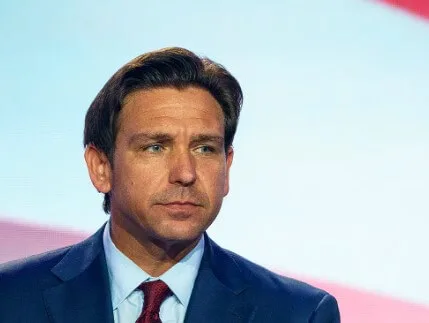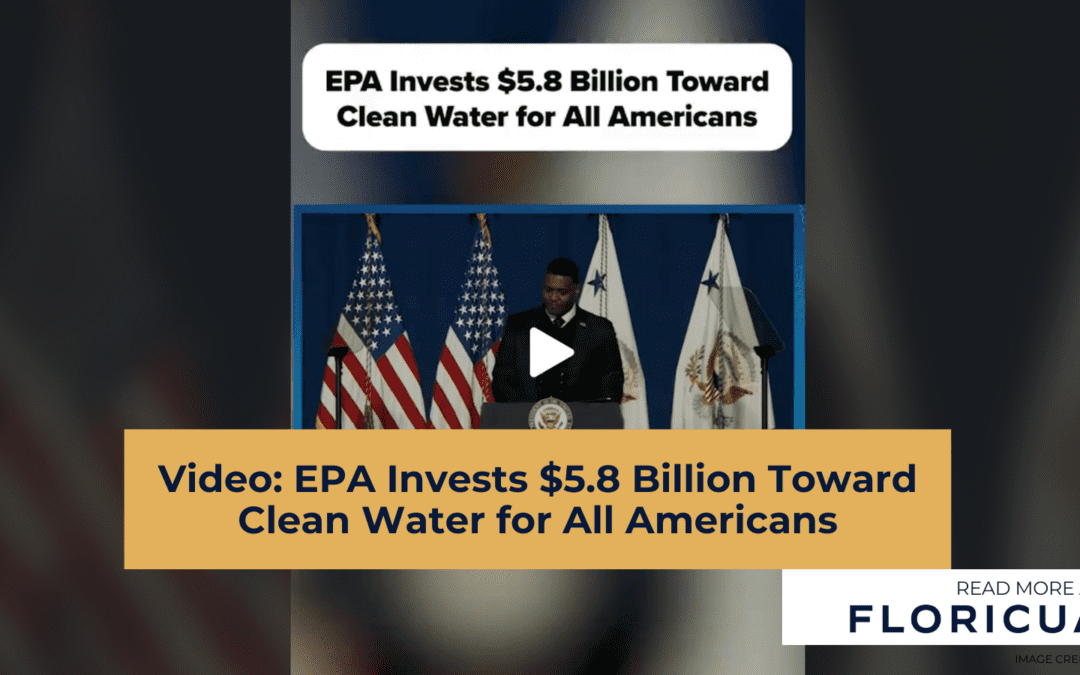
Image via screengrab
During Wednesday night’s second GOP presidential debate, the Republican governor blamed “economic decline” for the state’s high uninsured rate and ignored Medicaid expansion, celebrating that Florida doesn’t have “a lot of welfare benefits.”
More than 2.5 million Floridians (12% of the population) lack health insurance, a rate that is well above the national average and almost certain to rise this year after the expiration of a pandemic-era measure that prevented people from being disenrolled from Medicaid.
Yet during the second Republican presidential debate Wednesday night at the Ronald Reagan Presidential Library in California, Gov. Ron DeSantis failed to offer substantive policy answers when challenged about the state’s healthcare crisis.
When asked about Florida’s high rate of uninsured individuals, the governor blamed “economic decline” as he railed against the rising costs of groceries and gas, Big Pharma, Big Insurance and Big Government, and boasted that Florida doesn’t have “a lot of welfare benefits.”
But for years healthcare advocates have been pointing to one of the root causes of the healthcare crisis affecting children and families in the Sunshine State: his refusal to expand Medicaid.
A Refusal to Expand
Florida is one of 10 states that has not expanded its Medicaid eligibility to cover more low-income residents under the Affordable Care Act, popularly known as “Obamacare.”
RELATED: Florida Leads Nation in People Removed from Medicaid After Pandemic-Era Rule Ends
Yet Gov. Ron DeSantis’ and state Republican leaders’ continued refusal to support Medicaid expansion—with the federal government covering 90% of the cost—means that roughly 800,000 to 1.1 million Floridians aren’t getting health insurance they would be eligible for.
DeSantis’ opposition to Medicaid expansion isn’t a new position.
While serving in Congress, DeSantis voted six times to repeal the Affordable Care Act, and strip millions of affordable health coverage. DeSantis and state Republican leaders continue to sound the alarm about the future costs of expanding Medicaid. Yet the benefits are clear:
- States that expand will get billions in federal incentive funding for newly expanding states, according to a Center on Budget and Policy Priorities (CBPP) estimate.
- Florida could save $200 million per year by expanding Medicaid, according to an analysis by the Florida Policy Institute.
- Groups with the largest coverage gains would include non-Hispanic Black people, young adults, and women, and particularly women of reproductive age.
- Medicaid expansion has been shown to save lives and improve postpartum maternal health outcomes. It would also expand access to mental healthcare and substance use treatment amid the state’s growing mental health and addiction crises.
‘It’s All About Power’
During a visit to the University of Tampa in February of this year, President Biden, who is running on lowering drug costs, among other healthcare provisions, pledged to push for Medicaid expansion in the state.
RELATED: Biden’s Budget Would Tax Billionaires, Corporations to Strengthen Medicare, Expand Childare, and Help Families
“Over 1.1 million people in Florida would be eligible for Medicaid if Governor DeSantis just said I agree to expand it,” Biden said, adding that “the only reason that Medicare expansion hasn’t happened here is because of politics.”
Florida Sen. Victor (Vic) Torres, Jr., a Boricua Democrat representing south Orange and north Osceola counties, agrees with the president.
“This is 20 years of Republican control,” Torres previously told Floricua. “It’s all about power, about who controls the budget. It’s all about not giving Democrats a win.”
Support Our Cause
Thank you for taking the time to read our work. Before you go, we hope you'll consider supporting our values-driven journalism, which has always strived to make clear what's really at stake for Floridians and our future.
Since day one, our goal here at Floricua has always been to empower people across the state with fact-based news and information. We believe that when people are armed with knowledge about what's happening in their local, state, and federal governments—including who is working on their behalf and who is actively trying to block efforts aimed at improving the daily lives of Florida families—they will be inspired to become civically engaged.


Video: EPA Invests $5.8 Billion Toward Clean Water for All Americans

Florida Republicans delay ‘fetal personhood’ bill after Alabama IVF ruling
A Florida Senate committee announced Monday that it is postponing a Republican bill that would give fetuses civil rights as children. But opponents...

Florida’s wildfire season: What you need to know
Discover Florida's year-round wildfire risks, contributing factors, and prevention strategies, plus key historical events and community awareness....

Decline of Florida’s citrus industry hastened by Trump’s tariff tiff
Hurricanes and disease have already taken a tremendous toll on those fragrant trees, not to mention development demand for the land. This weekend I...




